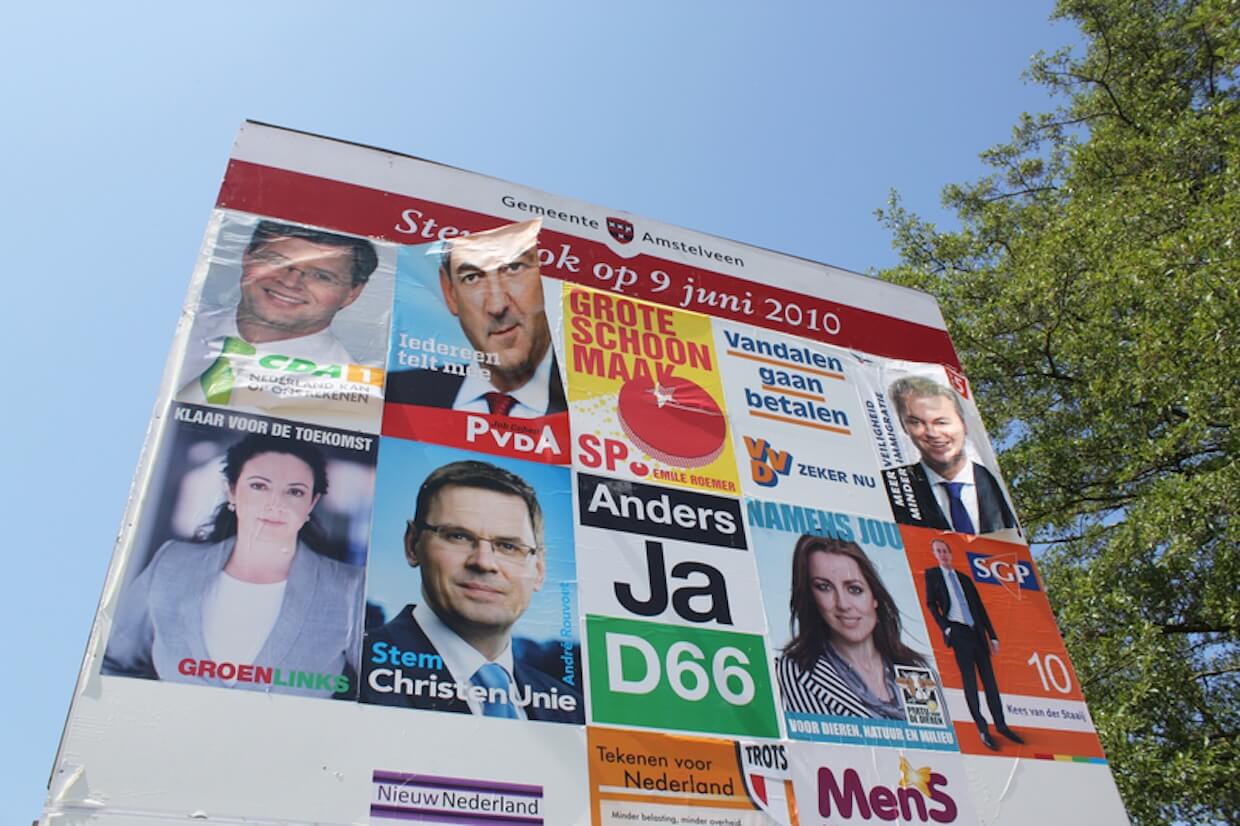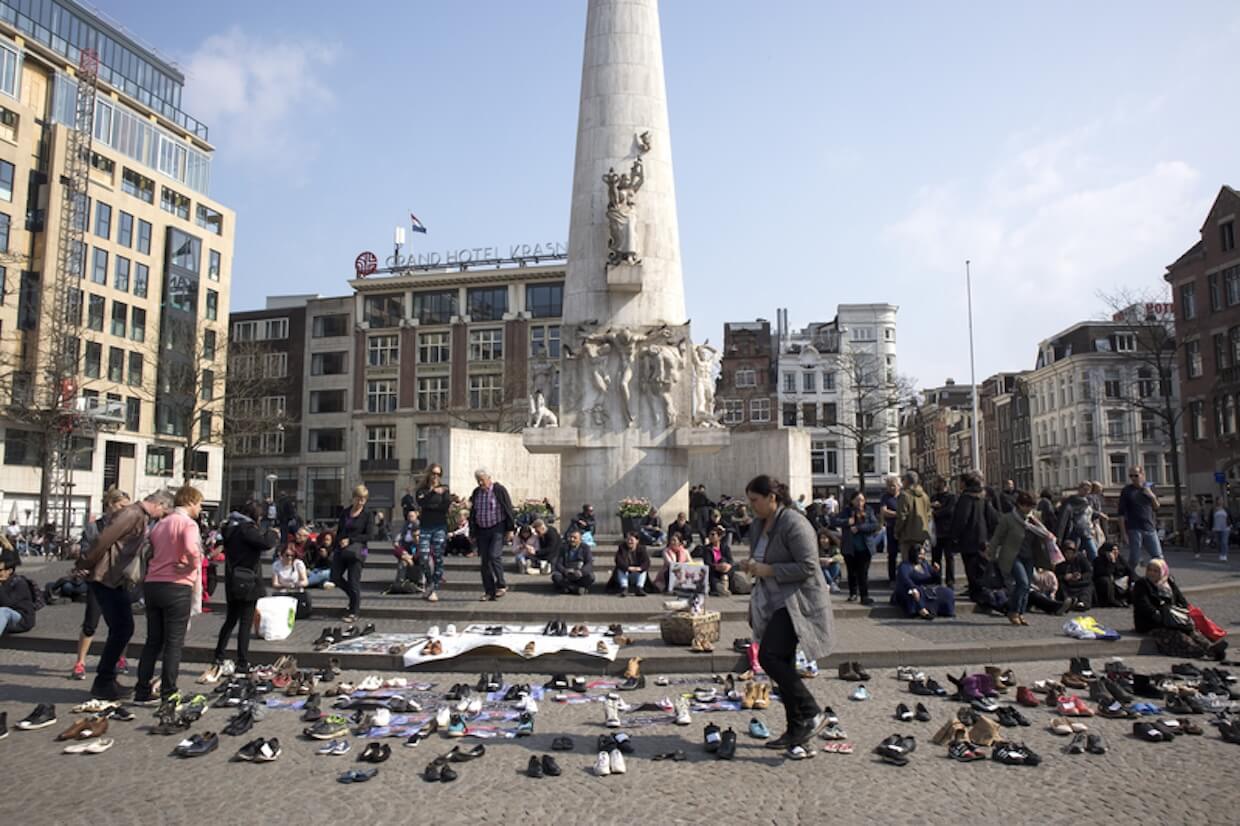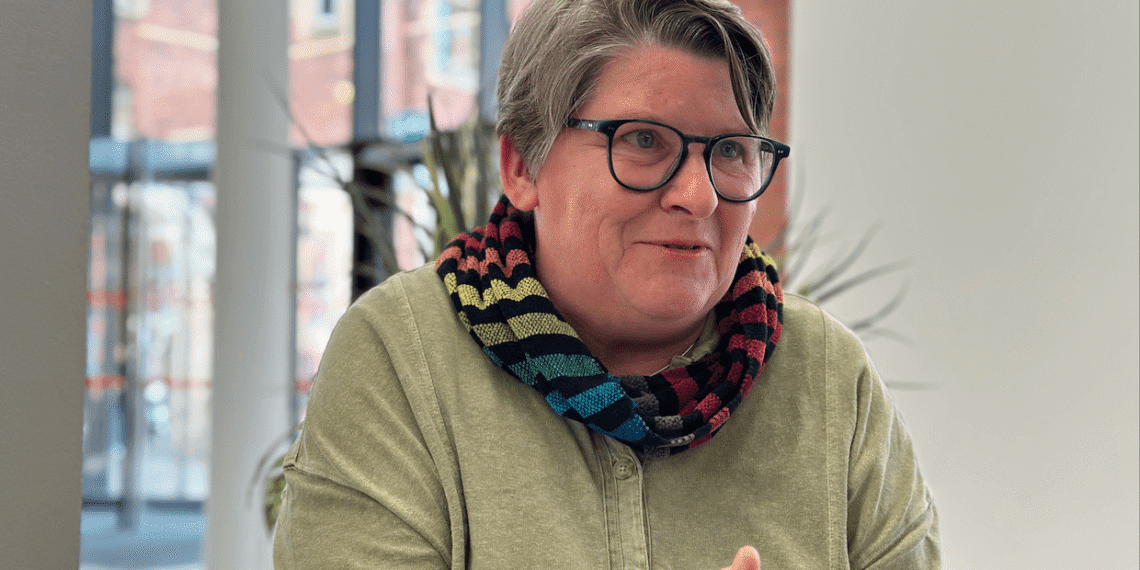In an interview for the ECPS, Dr. Ulrike M. Vieten offers a sharp sociological reading of the 2025 Dutch elections, arguing that “progressive liberalism appears rather cosmetic, and the Dutch elections reveal a significant win for fractured far-right populist parties.” Despite Geert Wilders’ setback, Dr. Vieten stresses that the far right remains structurally resilient, with PVV, JA21, and FvD together securing 42 seats. She highlights the normalization of anti-immigration rhetoric, the co-optation of far-right frames by centrist actors, and the deepening tensions between state-centered citizenship and post-migrant identities. From femonationalism to coalition politics, Dr. Vieten situates the Dutch results within broader European trajectories of nativism, militarization, and socio-economic neglect—warning that liberal democracy risks privileging cultural cohesion over social justice.
Interview by Selcuk Gultasli
In a political landscape marked by shifting coalitions, fragmented party systems, and the normalization of far-right discourse, Dr. Ulrike M. Vieten—Senior Lecturer (Associate Professor) in Sociology of Gender, Migration and Racisms at Queen’s University Belfast—offers, in an interview with the European Center for Populism Studies’ (ECPS), a trenchant sociological analysis of what the recent Dutch election reveals about the deeper transformations reshaping Dutch and European politics. As she succinctly observes, “progressive liberalism appears rather cosmetic, and the Dutch elections reveal a significant win for fractured far-right populist parties.”
While Geert Wilders suffered an electoral and institutional setback, Dr. Vieten underscores that far-right forces have neither receded nor lost structural relevance. She notes that Wilders’ PVV secured “a similar outcome to D66 in terms of parliamentary seats—26,” and that new actors such as JA21 and FvD collectively pushed the far right to 42 seats, signaling the entrenched resilience of nativist politics. This development, she argues, stems from longer-term shifts accelerated by the pandemic—an evolution she previously theorized as “pandemic populism.”
Yet the interview also probes the paradoxical dynamics of the 2025 contest: a weakened Wilders paired with the persistent mainstreaming of anti-immigration rhetoric. Dr. Vieten stresses that the far right’s discursive power continues to shape “cultural belonging and national identity,” even when its institutional credibility falters. Simultaneously, she warns that centrist and center-left parties have often co-opted far-right frames, thereby reproducing segregationist logics while claiming to oppose extremism.
A major theme running through the conversation is the shifting terrain of citizenship, identity, and post-migrant belonging. Drawing on her earlier work on “new European citizens,” Dr. Vieten observes that the pandemic’s border closures and re-territorialization of state authority profoundly disrupted the transnational lives of minority citizens. She also highlights how post-migrant elites—such as VVD leader Dilek Yeşilgöz-Zegerius—may themselves align with exclusionary agendas, complicating assumptions about progressive identifications among minority communities.
The interview further explores the gendered politics of far-right rhetoric. Here Dr. Vieten draws attention to how appeals to women’s rights have been tactically mobilized to justify anti-Muslim policies, echoing Sara Farris’s concept of femonationalism. Liberal narratives of emancipation, she warns, can themselves reinforce racialized boundaries of belonging.
Looking ahead, Dr. Vieten situates the Dutch outcome within broader European trajectories marked by the rise of far-right parties, centrist recalibrations, and an EU increasingly driven by anti-migration and militarization agendas. Liberal democracy, she suggests, risks becoming a project “selling cultural cohesion instead of social cohesion,” unless it confronts underlying socio-economic inequalities.
This interview thus contributes a critical and timely perspective to ECPS’s ongoing effort to interpret the Dutch elections within a wider European and global context.
Here is the edited transcript of our interview with Dr. Ulrike M. Vieten, slightly revised for clarity and flow.
A Splintered Far Right Still Sets the Tone in Dutch Politics

Despite the electoral setback for Geert Wilders, far-right parties collectively gained ground. How should we interpret this outcome in terms of the structural endurance of nativist, populist politics in the Netherlands?
Dr. Ulrike M. Vieten: The official setback to Wilders leading the strongest party this year (2025) doesn’t change the fact that (a) he achieved a similar outcome to D66 in terms of parliamentary seats—26, and (b) other far-right “kids on the block,” such as JA21 and FvD, also saw a rise in their share of populist votes. This clearly illustrates that the far right (populist) parties have splintered yet continue to pose a serious threat to liberal, socially diverse, and inclusive societies. All three parties (PVV, JA21, and FvD) can claim 42 seats out of 150 (compared to 41 they won in the last election in 2023). This means nativist (autochthon-oriented) ideology has gained and consolidated political ground over the years, particularly after the pandemic—a development I warned about when writing on “pandemic populism” (Vieten, 2022).
To what extent do the recent results illustrate a reconfiguration of far-right populism—from an electoral takeover strategy toward indirect agenda-setting power that continues to shape public discourse on immigration, cultural belonging, and national identity?
Dr. Ulrike M. Vieten: Though I have not followed the election campaign closely, as I do not currently live in the Netherlands, what was striking about the success of D66 and Rob Jetten—and several national and international media outlets have emphasized this—is that Jetten sold his politics with an overall positive message of “we can do it.” Dutch voters were not impressed with the performance of Geert Wilders and the last government on central issues such as housing provision and health services. In the end, the Dutch are often viewed as very pragmatic (similar to the English, as they say), and it might be the case that Wilders’ loss is an outcome of his lack of reliability in terms of policy delivery, and only to a lesser degree driven by the ideological content his far-right populist party conveys. Anti-migration policy—let’s not forget, Wilders’ coalition government resigned because he walked out on that issue—remains a sticking point. Rob Jetten’s overarching approach to what you call “cultural belonging and national identity” was to give the Dutch national flag a more positive (prideful) meaning, not always as a defense against others, but filling it with a form of socially cohesive meaning.
Post-Migrant Elites Don’t Always Align with Progressive Politics

Given your work on “new European citizens,” what do the 2025 elections reveal about ongoing tensions between state-centered citizenship regimes and the transnational identifications of post-migrant communities?
Dr. Ulrike M. Vieten: My research and publications on European minority citizens (2016; 2018) now feel like “light years away” (Lichtjahre entfernt). It was a comparative study of three EU countries (pre-Brexit England included) that examined how hyphenated Dutch, German, and British citizens identified as European and related to the European Union. Though I interviewed Moroccan-Dutch citizens—some of them very visible in the public sphere—the general argument may also apply to Turkish or Kurdish-Dutch citizens. However, all of this was carried out pre-pandemic, and as international lockdowns and travel bans taught us, the mundanity of transnational community life was largely suspended. One of my interview partners in Germany explicitly told me that her life as a transnational—maintaining friendships and family ties in Turkey, for example—was shattered and ignored during the pandemic. Nation-states restored their authority and sovereignty over citizens’ movement and territorial borders. Between 2020 and 2022, we witnessed a strict re-territorialization of governance—perhaps a prelude to what has come since and what we see today.
When we speak about “new Europeans,” and you bring up the concept of post-migration, it seems that some minority European/national citizens have made it into the ranks of national (and even international) elites, similar to “old established Europeans.” Ideological or value orientations do not necessarily differ simply because one has a post-migration background. An interesting and perplexing example is Dilek Yeşilgöz-Zegerius, the leader of the VVD (People’s Party for Freedom and Democracy), the conservative Dutch party, who explicitly stated she would not join a coalition with the merged GroenLinks/PvdA party. This means she would rather accept a coalition with far-right parties such as JA21. Yeşilgöz served as a minister in Rutte’s government and is a very experienced politician. But this tells a story of socially classed divisions within ex-immigrant and transnational communities, who do not automatically occupy a liberal-progressive or anti-authoritarian space.
Institutional Failure, Discursive Success
Wilders’ collapsed coalition appears to have weakened his institutional credibility, yet anti-immigration rhetoric remained central in campaign debate. How do you interpret this paradox of reduced governing legitimacy but persistent discursive power?
Dr. Ulrike M. Vieten: As I mentioned before, the collapse of Wilders’ coalition discredited him in terms of reliability and triggered the recent election. Coalition building is at the heart of most Continental European countries, including the Netherlands, and—as far as I remember—it took Wilders nearly a year to form a government anyway. So, the record of being in government and in power for just a year looks quite poor. The mainstreaming (or normalization; see Vieten & Poynting, 2022) is a discursive project that has been unfolding for years—post-2008 economic crisis and with a further push post-pandemic—accelerating at a pace that makes it difficult to challenge, as the underlying socio-economic problems are not going away.
To what extent do the Dutch results reflect a broader European pattern in which centrist parties co-opt right-wing discourses—thereby reproducing segregationist and anti-immigrant logics even while formally opposing the far right?
Dr. Ulrike M. Vieten: Well, unfortunately, it is not only conservative or center-right parties that have jumped on the anti-immigrant—e.g., anti-refugee—scapegoating wagon; center-left parties such as the Labour Party in the UK and the Social Democrats in Denmark have similarly placed anti-migration policy at the top of their agendas. That said, I would go beyond Europe here, as this reflects a broader zeitgeist and a global phenomenon. Though Brazil shifted leftward after the far right damaged the country, mainstream media worldwide continue to give center stage to far-right politicians such as Trump and follow closely the agendas they set. At some point, people may have forgotten that 15 years ago (or earlier, in the early 2000s) there was a very different spirit—embracing cosmopolitanism (albeit Eurocentric), diversity, and openness toward difference.
Returning to what I said earlier about the need to build coalitions, we will now see how Jetten bridges ideological divides, as he needs to form a coalition with three other parties, while the leader of the Dutch conservatives (VVD) has expressed her dislike for including the GreenLeft/Social Democrats in the government. Jetten might end up asking one of the smaller far-right parties, e.g., the FvD, to join. And then we will see how realistic and reliable such a coalition arrangement will be. It is not all out of the woods, and formal opposition is more of a strategy than a reflection of political will and capacity post-election.
Cosmetic Liberalism Cannot Counter Deepening Inequalities

Does D66’s civic-progressive liberalism meaningfully challenge racialized boundaries of European belonging, or does it risk perpetuating a “thin cosmopolitanism” that leaves structural inequalities untouched?
Dr. Ulrike M. Vieten: Your question speaks directly to what I mentioned earlier. The appealing persona of D66’s leader, Rob Jetten, may resonate with urban populations and those identifying as liberal-progressive in middle-class neighborhoods. Even the fact that he is openly gay (his partner originally from Argentina) is not, in itself, an indicator of anti–far-right trajectories. For years, Wilders politicized homosexuality in his rhetoric against Muslim communities, and Alice Weidel, the AfD leader, is a lesbian living with her partner in Switzerland. Therefore, an image of liberal pro-gayness does not say anything about how social cohesion will work in the Netherlands after the 2025 election.
A conservative agenda that is deemed not to tackle socially unfair living conditions in a post-migration society—such as access to housing, rising property prices, and the gap between living standards and affordability for young people—can easily slip into adopting far-right agendas of cultural cohesion. In that sense, a “thin cosmopolitanism” is not enough, as it fails to engage with the socio-economic concerns of a large segment of the population. Progressive liberalism appears rather cosmetic, and as we noted earlier, the election outcome shows a significant win for fractured far-right populist parties.
Fragmentation Masks the Growing Influence of Nativist Politics
With the rise of multiple smaller far-right parties (e.g., JA21, FvD), what does the diversification of the nativist field reveal about ideological differentiation, constituency segmentation, and the long-term resilience of the Dutch radical right?
Dr. Ulrike M. Vieten: I think we covered some of this before. The fragmentation of the Dutch far right—and the way center and liberal parties have adopted racist far-right political agendas, e.g., anti-migration/anti-refugee rhetoric—confirms that we are facing a normalization of far-right, nativist ideologies. The fragmentation reflects nuances as well as socially and culturally classed differences, but this does not diminish the broader presence of far-right actors. We might even see a smaller far-right party joining the government, which poses serious questions for the rule of law and for how the center-right continues to adopt policy agendas set by far-right politicians. The cordon sanitaire has already been abandoned elsewhere. An important piece of EU legislation, the Supply Chain Due Diligence Act, was just modified and diluted in scope and reach—and waved through with the votes of far-right parties/politicians, just this week.
Building on your research into gendered culturalism, to what extent has the strategic mobilization of women’s rights within far-right rhetoric served to legitimize exclusionary policies toward Muslim communities—thus normalizing racialized boundaries of national belonging?
Dr. Ulrike M. Vieten: I would go beyond this argument by questioning how liberal notions of female emancipation have also played into anti-Muslim rhetoric and have not prevented the passage of generically racist legislation. The latter refers to laws banning the veil and sustaining narratives of white European supremacy. My colleague Sara Farris (2017) argues that “neoliberalism [is] a political-economic formation that institutionalizes the femo-nationalist ideology as part of the functioning of the state apparatus in order to (re)organize the productive and particularly the socially reproductive sphere” (2017: 14).
Following closely the national civic integration strategies, not only addressing Muslims, but generally migrants, Farris scrutinized data in three EU countries spelling out that Muslim women (and female migrants) are incorporated into the concrete European ‘femo-nationalist economies’ as domestic space keepers. While Muslim men (and migrants, predominantly Muslims) are constructed as outsider-threats, Muslim women are displaced into the social reproduction sphere of the different nation-state. Her argument is intriguing because it interrogates the mainstream liberal narrative that only the far right (or extremists) threatens “our way of life.” But certainly, this kind of post-Marxist analysis is not very fashionable, insisting that normal gendered belonging is already the problem as it is keeping hierarchies of exploitation untouched.
Liberal Democracy Risks Prioritizing Cultural Unity Over Social Justice

Finally, what do the 2025 Dutch election results suggest about broader European political trajectories—especially the concurrent resilience of far-right nativism and the tactical recalibration of centrist actors seeking to contain it—and how might this interplay shape the future of liberal-democratic politics on the continent?
Dr. Ulrike M. Vieten: Like what happened in Austria and Germany where far-right parties were either coming into first place (Austria) or second (Germany) these countries managed to build coalitions, excluding the far-right for now. As I mentioned above, it now depends on how Jetten and crucial parties such as the VVD can hold their ground and compromise on a trustworthy and stable coalition. We already have far-right parties in government in Western Europe, such as in Italy, and long established in Eastern Europe, such as in Hungary. And if we think of the European Union more broadly, its anti-migration policy (e.g., anti-asylum stance) has shifted toward far-right, anti-foreigner hysteria—for example, outsourcing asylum processes—and is dominated by Angst (both in terms of real and imagined politics) of the Russian.
Accordingly, the second major theme is militarization (and its multi-billion-euro funding), which—let me guess—is undermining spending for social and cultural policies and cohesion across the EU and within European countries. The potential new Dutch government will fit this trajectory very well, as left (or socialist) visions have been rejected across the board. The problem with liberal democracy is that it continues to promote a narrative that ignores socio-economic questions of redistribution, selling cultural cohesion instead of social cohesion.


